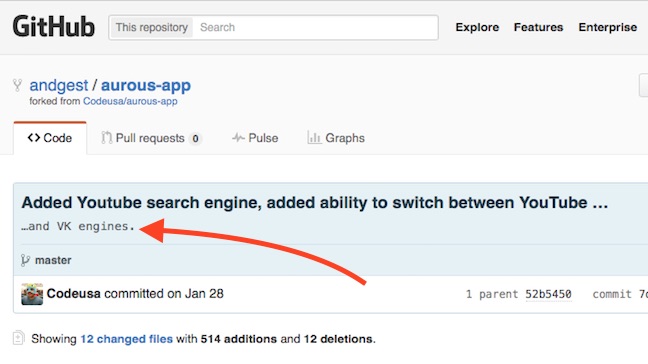This article is more than 1 year old
Aurous shutters for good, will pay $3m damages
Not really a good idea
Pirate music wannabe Aurous has shut down, barely three months after first surfacing. Billed in Vice as “BitTorrent Music for your Dad”, and described as a “Popcorn Time for music”, the outfit, whose sole proprietor was Andrew Sampson, has agreed to pay damages of $3m.
The case is notable for the speed with which the operation was shuttered. The software was written by Sampson, who had previously written a search engine for Torrent trackers.
The site first released beta software and code in August. But within days, Aurous had been slapped with a copyright infringement lawsuit from the Recording Industry Ass. of America, on behalf of music companies. The case described it as a “service that blatantly infringes the Plaintiffs’ copyright by enabling Internet users to search for, stream, and download pirated copies of Plaintiffs’ sound recordings for immediate listening and later playback.”
The plaintiffs rapidly won a restraining order, making today’s shutdown and settlement inevitable.
“Essentially what we’ve done is turn every Aurous user into their own search engine,” he boasted, claiming that he only found links to licensed music on SoundCloud or YouTube.
However, Aurous not only maintained a master list of results (one of two search methods offered by the service), an examination of the source code showed hardcoded links directing the searches towards sites that hosted unlicensed MP3s, such as "Russian Facebook" VK.com.
Because Aurous used filtering, it was in reality far less decentralised than Sampson had argued, and couldn’t be confused with a passive information service with substantial non-infringing uses. In fact, Aurous was much more similar in design to the original dot.com-era Napster.

In 2005, the Supreme Court threw out various defences put forward by Grokster. The Supremes' decision definitively ruled out any possibility that sites that intended to serve a demand for infringing content could take refuge in any legal loopholes.
Sampson’s public comments also made him a target for the charge of vicarious infringement.
Amongst his many errors, Sampson had maintained his innocence, and his attempts to rally social media via hashtags backfired.
Developer likens @aurousapp to a gun manufacturer, calls musicians against piracy "liberal trash." Do you still #StandWithAurous?
— David Poe (@poedavid) October 21, 2015
Today the RIAA released the permanent injunction.
Final Score: Music Makers = 1, @AurousApp and Music Thieves = 0 #IRespectMusic https://t.co/6WymBQ63IF YEAH!!!!
— Blake Morgan (@TheBlakeMorgan) December 9, 2015
The source code remains live (for now) on Github. ®
